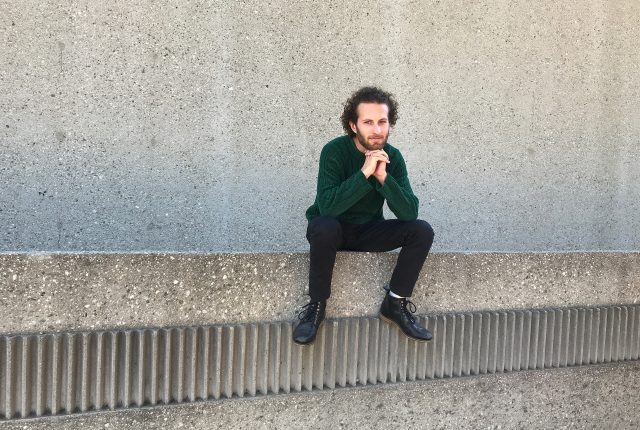
What is your area of research?
My research is really at the intersections of black studies and Jewish studies. I’m interested in interrogating the broad, historical relationship between anti-Semitism and white supremacy by looking in particular at Nazism’s relationship to contemporaneous forms of French colonialism and American racism. In the past twenty years or so, important research has revealed the links between Holocaust memory and decolonization and has uncovered the material connections between colonialism, anti-black racism, and Nazism. I’m interested, however, in exploring how black writers living and writing during the rise of Nazism imagined and represented these links and connections (without retrospective awareness of the “actual” links), integrating Nazism into a global history of white supremacy and locating European fascism’s origins in older forms of racist governance.
What inspired you to choose this field of study?
The first black studies course I took as an undergrad at Northwestern University was titled “The Black Diaspora and Transnationality” and was taught by Richard Iton, may he rest in peace. The course was my first critical engagement with the concept of diaspora and enabled me to reorganize my own Jewish identity and practice in ways more compelling to me than what I had been taught in my suburban, Jewish community. My understanding of Jewish history and culture began to circuit through the methodologies and frameworks of black studies. This kind of circuiting, and my subsequent coursework in black studies as an undergrad, really inspired my present research.
Why is this research important?
When I was applying to PhD programs and describing my project, I felt like I really needed to make a case for the relationship between Nazism and white supremacy. Mainstream narratives of both were so often segregated that people remained skeptical until I emphasized literal, historical connections between American eugenics and Nazi eugenics, or between German colonialism and Nazism, or between Jim Crow laws and Nuremberg laws. In the past two years, however, political events have made contemporary connections between Nazism and American racism impossible to ignore. It has never been more clear that a global network of white supremacy exists across the West and our segregated methods of understanding racism and colonialism have contributed to the belated shock that it could happen here.
What has most influenced your thinking as a researcher or scholar?
It might be surprising to hear but I think my time spent learning in yeshivas, traditional Jewish academies (for men), most influenced my thinking as a researcher. Learning in yeshivas, spaces whose epistemologies and methodologies are so radically different from those of the modern, Western academy, gave me important experiences in knowledge production distinct from those in American public schools and universities. Like with knowledge of a second language, alternate learning experiences open your mind to new ways of thinking that decenter the normative or hegemonic mode. My interest in the alternative thinking found in black studies, and its critique of mainstream historical narratives and knowledge production, is very much influenced by own experience and deep love for the alternative, yeshiva-style thinking still denigrated by the secular West as backwards, pre-rational, and oppressive.
What mentors have you found at UCLA?
When I first expressed interest in a PhD, one of my undergraduate mentors, Alex Weheliye, told me I had to read Multidirectional Memory and work with Michael Rothberg. The problem was that Michael was at University of Illinois and there was no way I was spending 5+ years in Champaign-Urbana–especially as someone who grew up in Chicago, went to undergrad in Chicago, and was anxious to get out of Illinois. So I ended up ignoring that suggestion and coming to UCLA; and at the end of my first year, I heard that Michael was coming to join the Comparative Literature department here! Since he joined the department, Michael has been an incredible resource and mentor to me, challenging my ideas and writing while providing crucial support for my research. One advantage of Comparative Literature is the flexibility to find mentors in other departments as well and I have been extremely grateful to find a mentor in Robin Kelley, who has given much-needed personal, political, and academic guidance.
What activities or hobbies do you enjoy, as a break from work?
I think the whole idea of being a stressed, depressed, and over-worked graduate student is insane! It’s a massive privilege to read, write, and learn all day so the idea of making it into a spirit-crushing endeavor seems funny. I love the outdoors so I try to go on hikes and go to the beach as much as possible. Also, I love cooking and we are so blessed with fresh fruits and vegetables in southern California so I enjoy taking advantage of those. I’m also very lucky to be in a city with a large and thriving queer community and you can find me at queer art events, dance parties, and more!

